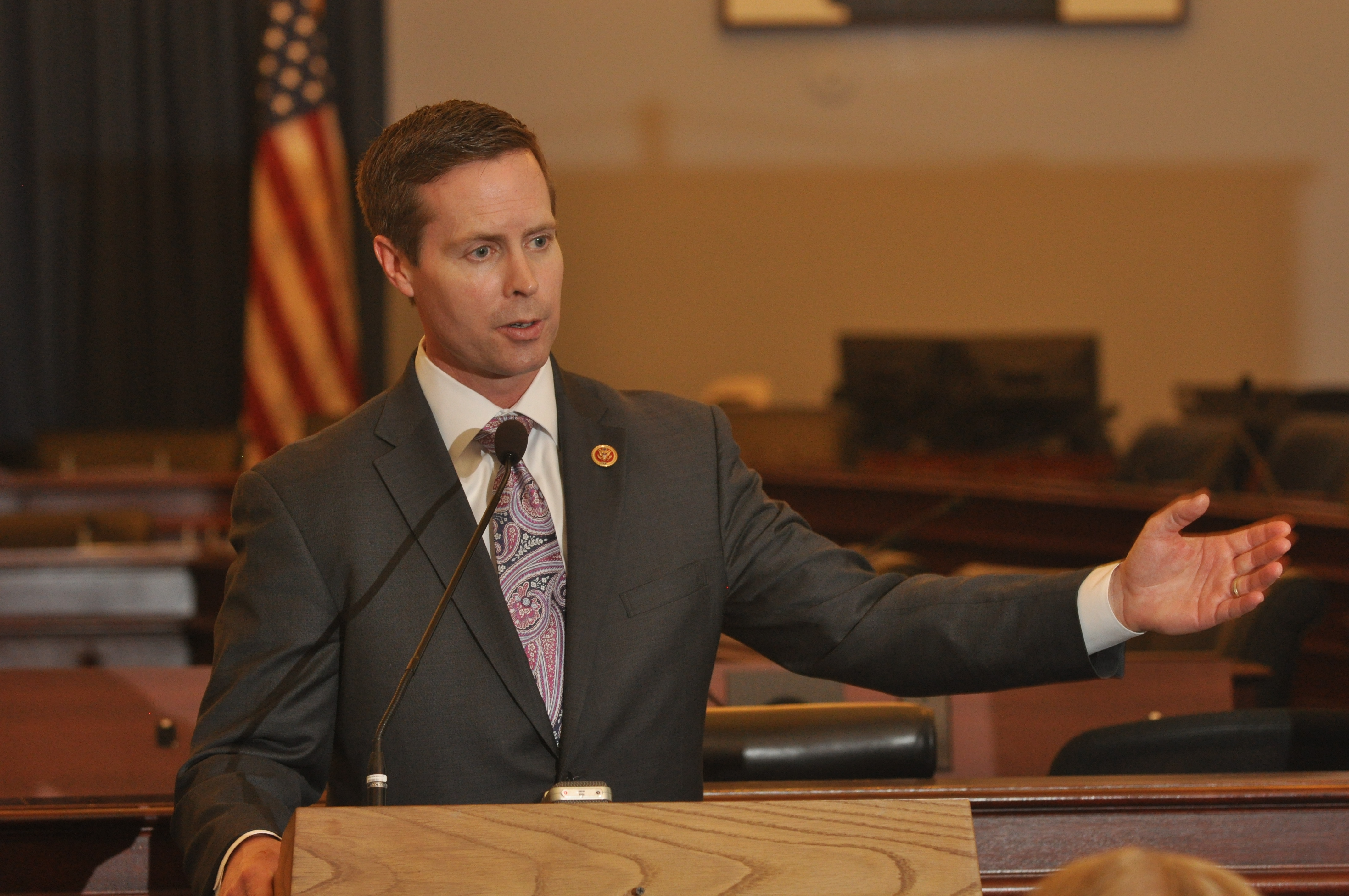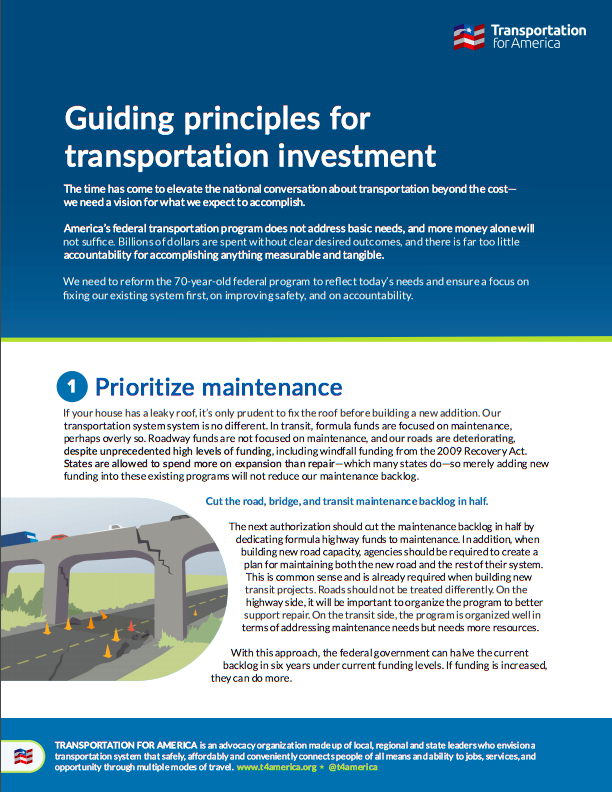New bill would give local communities greater access to federal transportation funds
A bill introduced yesterday would give local communities across the country greater access to federal transportation funds to invest in their homegrown transportation plans and projects — answering one of the most consistent requests we hear from our coalition of local leaders and officials across the country.

Rep. Rodney Davis (R-IL), speaking at a briefing on Capitol Hill in February, introduced the new Innovation in Surface Transportation Act with Rep. Dina Titus this week.
The Innovation in Surface Transportation Act (HR 4726), introduced yesterday in the House of Representatives by Reps. Rodney Davis (R-IL) and Dina Titus (D-NV), would provide improved decision-making, responsibility and greater access to federal transportation funds for local communities. It would carve out dollars within each state for competitive grants to be awarded to local communities by a diverse selection panel that includes representatives from the state DOT and local jurisdictions.
A constant refrain from the many local elected and business officials we’ve met with over the last few years is that they have little to no access to funds, or, no seats at the decision-making table. This bill would fix exactly that while also spurring innovation, collaboration and efficiency through competition. Awarding funds through a panel of stakeholders and DOT experts will help steer investment toward projects with the greatest bang for the buck.
“Competition spurs innovation that formula funds never ever will,” as T4’s Beth Osborne wrote about this type of competition in the Atlantic Cities a few weeks ago. “Competition generates incredible excitement and a desire to outdo your neighbor. As a result, federal dollars are made to go farther, more non-federal funds are brought in from both public and private sources, and every penny is targeted to accomplish multiple goals.”
We know that the civic leaders in communities across the country are more than willing to compete and be held accountable for the results of their investments, but they currently just don’t get enough access to the funds they need to meet their communities’ needs. This bill would require that some of the money flow down to communities — a great way to make good on Congress’s promise of more local control in MAP-21.
Eligible projects for the in-state grant competition would include all projects currently appropriate for the Surface Transportation Program — such as bridge repair or improvement, highway projects, freight movement, bike and pedestrian safety and transit, to name a few.
This proposal — along with its Senate companion discussed last week by Senators Booker and Wicker — would take a major step toward bringing funds down to the local level to ensure that the people who know the needs of their community best will help decide how transportation dollars should be spent.
We’ll have much more on the details of this program next week, so stay tuned.
Urge your Rep and your Senators to cosponsor this bill today. Send them a message today.











 This new guide, a collaboration between @T4…
This new guide, a collaboration between @T4…
2 Comments